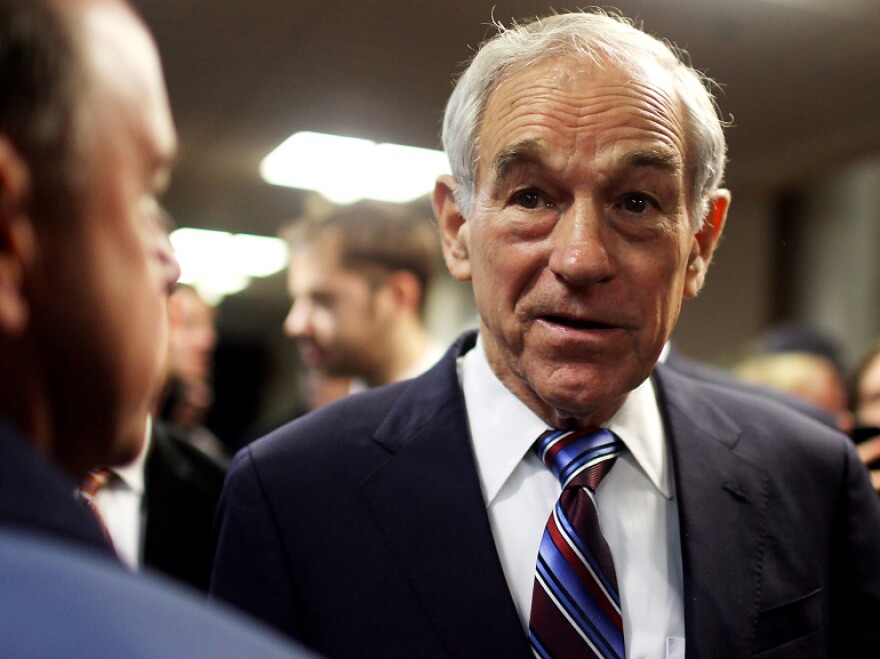Everybody knows that Ron Paul is a doctor from Texas. Born in Pittsburgh in 1935, he graduated from Gettysburg College and Duke University's medical school. He was a flight surgeon in the Air Force. His wife's name is Carol. He has served as a Republican congressman for years and years.
Everybody knows that Paul has made bids for the presidency three times — as a Libertarian in 1988 and as a Republican in 2008 and this time around. And everybody knows he lost the first two.
Everybody knows that Paul has moved into second place behind Newt Gingrich in the Des Moines Register's most recent Iowa poll — following Herman Cain's decision to suspend his campaign.
And everybody knows that Paul favors low taxes, free markets and commodity-backed currency. Ron Paul has been Ron Paul for a long time.
But not everyone knows that Ron Paul is now selling a family cookbook on his campaign website or that he was a track star in college — he ran a mean 220-yard dash. And here are five other things that might surprise you about Paul.
1. He is a pretty good baseball player.In 1979, according to The Washington Post, Paul swatted a two-run homer over the left-field wall for the Republicans in the 18th annual congressional baseball game. But his team lost to the Democrats 7-3.
2. He was a frat boy. Karen Kwiatkowski, a co-author of the 2008 biography
Ron Paul: A Life of Ideas, says that while Paul was a student at Gettysburg College in Pennsylvania, he was a member of Lambda Chi Alpha — one of a few national fraternities to take an early stand against cruel and dangerous hazing practices. One of Paul's fraternity brothers was fellow biology student J. Michael Bishop, who went on to win the Nobel Prize in 1989 for research into cancer-causing viruses.
3. He can deliver.As a doctor in Texas, Kwiatkowski says, Paul delivered more than 4,000 babies over the years. Most people may not know that Paul "has also been an outspoken proponent of midwifery, market-driven health care and, in his medical practice, he refused to accept federal funds." Even under great pressure from the Texas branch of the American Medical Association and the Texas Medical Board, Kwiatkowski adds, "Dr. Paul refused to accept Medicare and Medicaid funding even as he served many of the poorest residents of Brazoria County."
4. He might have run against offbeat musician Frank Zappa. This is from a 1987
Los Angeles Times item: Just before Paul was nominated by the Libertarian Party to run for president — at their gathering in Seattle — Robert Murphy, a Libertarian delegate from Oklahoma, approached Zappa and asked him to throw his hat in the ring. After meeting with Murphy for hours and studying the party's platform, Zappa declined. It would have been a Mother of Convention.
5. He was the victim of a political scam. In 1996 The New York Times — crediting The Austin American-Statesman — reported that the Republican National Committee pulled a dirty trick on Paul. According to the Times, Paul was running for Congress against fellow Republican Greg Laughlin, whom he eventually defeated in a runoff. During the campaign, an Austin marketing company called people and asked respondents who favored Paul if they would still support him knowing that he was in favor of legalizing drugs, pornography and prostitution. The real truth, the Times noted, was this: "Dr. Paul said he only favored repeal of Federal laws on drugs, pornography and prostitution, leaving states to prohibit them."
Copyright 2020 NPR. To see more, visit https://www.npr.org.


